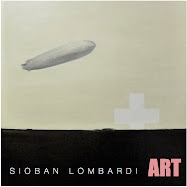On January 1st I expressed my hope that I remain grateful for the generosity of critique. Tuesday night I had a crit with a particularly close peer group and a new professor. It always takes me a few days to fully process what I have heard, but I am satisfied that some of the questions raised are those I am already asking myself about the work. On the whole, it was thought provoking and went quite well.
There is always one bit I immediately take away that is a sort of an a ha! moment. It was suggested to my colleagues and I that we develop a personal set of criteria that determines when a work is done to our own satisfaction. Brilliant! I love a set of self-determined criteria that I can meet and then surpass. Or, what does it mean when my gut tells me that I have finished a work, but I have not yet met all of my criteria? This notion presents a real opportunity for both restraint and expansion. I have begun work on my own set.
As for critique, I value it, even on those occasions when I get ripped a new one. It forces me to break from my routine and think conversely. I will miss the unfettered honesty of academic critique when I leave here. I will also miss the language particular to it. Every profession has a specific language. For those of you who have not experienced a studio arts critique, I have prepared a little primer highlighting some of the terms heard in critique. It includes those that one would and would not want to hear. I have heard many.
dreamlike: doesn’t make sense in the physical world
dreamy: blurry or out-of-focus, except in painting, where blurry or out-of-focus is now always called Richter
not my aesthetic: may be well executed, but you just hate it
risky: jury’s out – could be good, could be bad, but kudos for trying something beyond of your comfort zone
push: when you’re encouraged to take the work beyond that comfort zone
tasteful: formally attractive but careful, boring, innocuous
Pop: if your professor was schooled in the 50’s or early 60’s, they hate it
crap: crap
outrageous: if painter Linda Francis is critiquing, it means really good (as in, “that pink in those shoes is outrageous!”)
crazy: my personal version of outrageous (as in, “Heather, that Godzilla painting is crazy!”)
ambiguous: swings both ways – good, it’s asking a lot of questions - bad, it’s indecisive
elegant: at risk of becoming tasteful - frugal, yet well done, well composed, well thought out, well executed and usually well received
muddy: you let your solvent/medium get too dirty, but because it was so late and you were so tired, you didn’t notice – but your critics did
editorial: when the artist is trying to shove their opinion down the viewer’s throat
conceptual: just plain used way to often and not in the proper context
quaint: nostalgic
nostalgic: fictional construct of a perceived, not necessarily factual, past - usually coexists with sentimental
sentimental: the bad kind of emotional
poignant: the good kind of emotional – may provoke an unexpected visceral response
necessary: an element or elements that reveal the context of the art work and/or elevate the formal quality of the work
sufficient: the correct amount of the necessary
Next week, I have a one-on-one crit with a particularly well-known artist. I am nervous. I’ll let you know if any of the above terms come up.




i loved this !! yep , change the language but the concepts are exactaly the same everywhere .
ReplyDeletebuy the way .... exelent painting . ( and exelent here means really really good ) .
see you .
good lucky next week . i am pretty sure just the best terms are coming up .
love it Sioban - outrageous even, If i may borrow Linda's word. YOur blogs are always thought provoking, thanks for sharing.
ReplyDeleteLet me know how it goes next week!!!
V
I love all the terms. fun to see your writer's voice developing right alongside your painter's voice. xo
ReplyDeleteLoved it! again! especially that I am going through a period of questioning my work, and why I do it, what it is that I do and have been reading a lot of critical text to self-educate. This was very helpful.
ReplyDelete